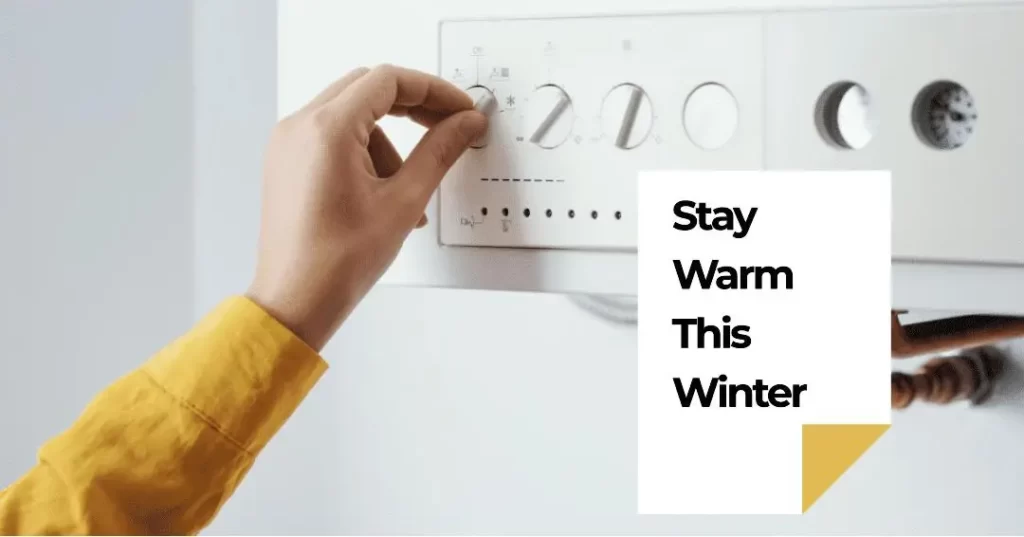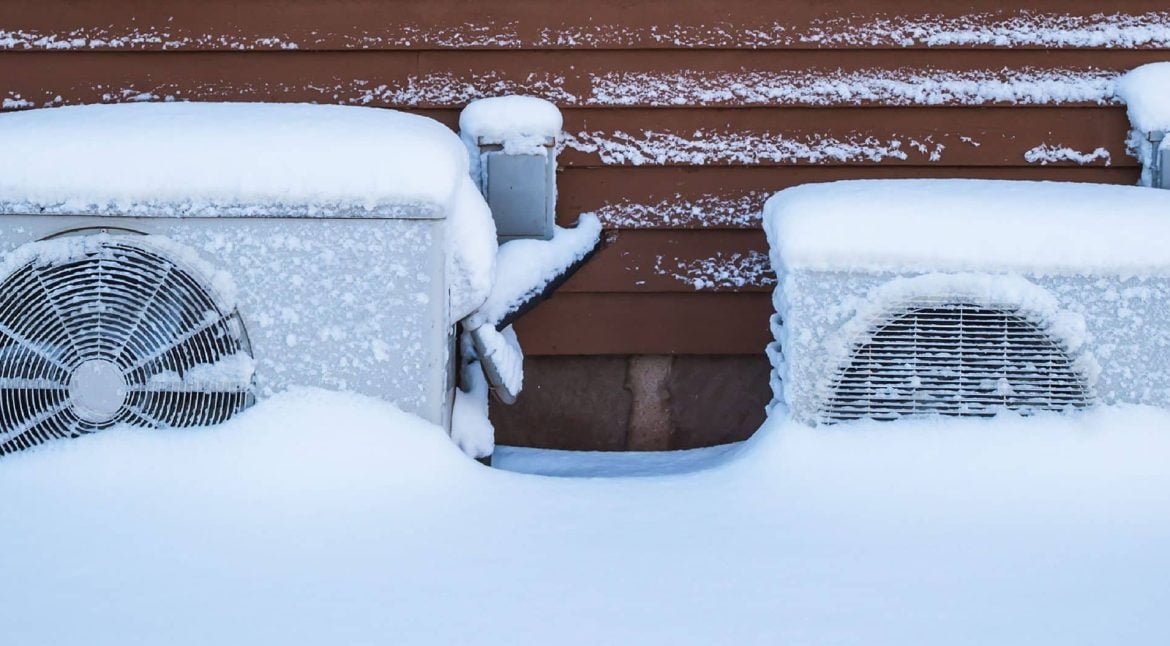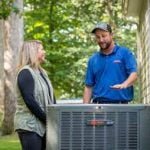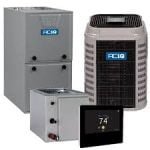Winter Maintenance for Your HVAC System
As the cold season approaches, taking care of your HVAC (Heating, Ventilation, and Air Conditioning) system becomes important. It’s not just about staying warm; it’s about ensuring a comfortable, efficient, and cost-effective winter.
we will explore the importance of winter HVAC maintenance, why it matters, and how it can benefit you.
Why HVAC Winter Maintenance Matters
Neglecting your HVAC system during the winter months can lead to various problems. These issues can range from minor inconveniences to major expenses. Here’s why you should prioritize winter maintenance:
- Preventing Potential Problems: When you ignore HVAC maintenance, you risk encountering issues like breakdowns, reduced heating efficiency, and even safety hazards. Regular maintenance can catch problems early, preventing inconvenient and costly breakdowns.
- Saving Money: Did you know that well-maintained HVAC systems are more energy-efficient? This means lower utility bills throughout the winter season. The cost savings can be substantial, making maintenance an investment that pays off.
- Ensuring Comfort: Nobody wants to endure a chilly home in the dead of winter. Proper maintenance ensures that your HVAC system operates at peak performance, providing the warmth and comfort your family deserves.
DIY HVAC Winter Maintenance Tasks

Taking proactive steps to maintain your HVAC system during the winter can save you time, money, and the discomfort of a cold home. Here’s a checklist of essential tasks that homeowners can easily handle themselves, along with step-by-step instructions and safety tips:
Change Air Filters:
Why: Clogged air filters restrict airflow, making your HVAC system work harder and less efficiently.
How to do it:
- Turn off your HVAC system.
- Locate the air filter. It’s usually found in the return air duct or near the furnace.
- Remove the old filter and dispose of it properly.
- Insert a new filter, ensuring it’s facing the right way (there’s usually an arrow indicating airflow direction).
- Turn your HVAC system back on.
Safety Tip: Always follow the manufacturer’s recommendations for filter replacement frequency.
Clean Vents and Registers:
Why: Dust and debris can accumulate in vents and registers, reducing heat distribution.
How to do it:
- Remove vent covers or registers carefully.
- Use a vacuum cleaner or a brush to remove dust and debris.
- Wipe the covers or registers with a damp cloth.
- Reattach the cleaned covers securely.
Safety Tip: Ensure the HVAC system is turned off while cleaning vents and registers.
Inspect Insulation
Why: Proper insulation keeps heat inside your home, reducing energy waste.
How to do it:
- Check the insulation in your attic, basement, and crawl spaces.
- Look for signs of damage or wear, such as sagging or gaps.
- Add or replace insulation as needed to maintain proper coverage.
Safety Tip: Wear protective clothing, gloves, and a mask when handling insulation materials.
Seal Leaks
Why: Gaps and cracks in doors and windows can let cold air in and warm air out.
How to do it:
- Use weatherstripping to seal gaps around doors and windows.
- Apply caulk to seal gaps around pipes, cables, and other openings.
Safety Tip: Ensure proper ventilation when using caulk, and follow manufacturer guidelines.
performing these DIY winter maintenance tasks, you can improve the efficiency and longevity of your HVAC system while keeping your home cozy and your energy bills in check. These tasks are relatively simple and can be accomplished with minimal effort and basic tools.
Also Read: Is HVAC Dangerous? Understanding the Risks and Ensuring Safety
Hiring Professional HVAC Services
While DIY maintenance tasks are valuable, sometimes it’s best to enlist the help of professionals for your HVAC system’s winter maintenance.
Advantages of Hiring HVAC Professionals:
- Expertise and Experience: HVAC professionals are trained and experienced in working with heating systems. They can identify and address issues that may go unnoticed by homeowners, ensuring your system operates optimally.
- Safety: Handling HVAC components can be risky without proper knowledge and equipment. Professionals are well-versed in safety procedures, reducing the risk of accidents or damage.
- Comprehensive Maintenance: HVAC technicians perform thorough inspections and maintenance, including tasks that may be beyond the scope of DIY efforts. This ensures that your system is in peak condition.
- Efficiency: Professionals can improve the efficiency of your HVAC system, potentially saving you more on energy bills than the cost of the service itself.
- Warranty Protection: Some HVAC manufacturers require professional maintenance to maintain warranty coverage. Hiring professionals ensures you comply with warranty requirements.
Choosing a Reputable HVAC Service Provider
When selecting an HVAC service provider for your winter maintenance needs, consider the following:
- Licensing and Certification: Ensure the company and technicians are licensed and certified to work on HVAC systems in your area. This ensures they meet industry standards.
- Reputation: Read online reviews and ask for referrals from friends or family to gauge the provider’s reputation.
- Experience: Look for providers with a proven track record and extensive experience in HVAC maintenance.
- Insurance: Verify that the provider carries liability insurance to protect you and your property in case of accidents.
- Transparent Pricing: Request detailed cost estimates, including labor, parts, and any additional charges. Be wary of significantly low or high quotes.
Scheduling HVAC Maintenance Timelines
Maintaining your HVAC system during the winter season is essential, but timing is critical to ensure it functions optimally throughout the colder months.
When to Perform HVAC Winter Maintenance:
The best time to perform HVAC winter maintenance is in the fall, ideally during early to mid-autumn. Here’s why:
- Preparation: Conducting maintenance before the winter cold sets in allows you to identify and address any issues or necessary repairs while your HVAC system is not under heavy demand. This proactive approach ensures that your system is ready to perform when you need it most.
- Avoiding Cold Snaps: Waiting until the first cold snap or frost to address HVAC issues can lead to discomfort and emergency repairs. By scheduling maintenance in advance, you minimize the risk of unexpected breakdowns.
Creating a Seasonal Maintenance Schedule
To maintain your HVAC system effectively, consider these steps for creating a seasonal maintenance schedule:
Fall (Early to Mid-Autumn)
- Schedule a professional HVAC inspection and maintenance service.
- Change air filters and clean vents as part of your DIY maintenance.
Winter (Throughout the Season)
- Monitor your HVAC system’s performance regularly.
- Check for any unusual noises or signs of reduced efficiency.
- If you notice issues, contact a professional promptly to address them.
Spring (Post-Winter)
- Schedule another professional inspection to evaluate your HVAC system after the winter season.
- Change air filters and clean vents if necessary.
Summer (Optional)
If your HVAC system also includes air conditioning, consider having it inspected and serviced in preparation for the warmer months.
Benefits of Proactive Planning
Proactive planning for HVAC winter maintenance offers several advantages:
- Cost Savings: Addressing issues before they become major problems can save you money on emergency repairs or replacements.
- Comfort: A well-maintained HVAC system ensures consistent warmth and comfort during the winter, avoiding the inconvenience of a breakdown during cold weather.
- Energy Efficiency: Regular maintenance keeps your system running efficiently, reducing energy consumption and lowering heating bills.
- Longevity: Proper care can extend the lifespan of your HVAC system, postponing the need for a costly replacement.
- Peace of Mind: Knowing that your HVAC system is well-maintained and ready for winter provides peace of mind, reducing stress during the colder months.
By scheduling HVAC winter maintenance in advance, you not only protect your investment but also ensure a comfortable and worry-free winter season.
Tips for Efficient Winter HVAC Maintenance
Here are some straightforward tips to make your HVAC system work better during the winter:
Use a Smart Thermostat
- Easy Control: Smart thermostats let you adjust the temperature easily.
- Set Schedules: Make a heating schedule for when you’re home, away, or sleeping to save energy.
- Remote Control: Change settings using your phone, even when you’re not home.
- Learning Features: Some smart thermostats learn your preferences and adjust automatically.
- Track Usage: See how much energy you use and find ways to save.
Get Regular Inspections
- Spot Problems Early: Pros can find and fix issues before they become big problems.
- Keep It Clean: They clean and oil parts to keep your system running smoothly.
- Check for Leaks: Pros make sure your ducts and insulation are good to reduce heat loss.
- Test Efficiency: They check if your system is working as well as it should.
- Safety First: Inspections also consider safety concerns, like gas leaks or carbon monoxide.
Should you run the HVAC fan all the time in winter?
Running the HVAC fan continuously in winter is not necessary. It can lead to higher energy consumption and may not provide significant benefits. Instead, use the fan in “Auto” mode, so it runs only when the heating system is actively heating the air. This helps distribute warm air effectively without unnecessary energy use.
Should you close HVAC vents in winter?
It’s not recommended to close HVAC vents in winter. Closing vents can disrupt the balance of your heating system, causing efficiency issues and potentially damaging the system over time. It’s better to let the HVAC system distribute air evenly throughout your home, even if you want to heat specific rooms less. Adjusting the dampers within the vents or using space heaters in individual rooms can be more effective and safer.
How often should an HVAC system be maintained?
HVAC systems should be professionally maintained at least once a year. It’s advisable to schedule maintenance in the fall before the winter season begins. Regular maintenance helps ensure your system operates efficiently, prevents unexpected breakdowns, and extends its lifespan. Additionally, you can perform basic maintenance tasks like changing air filters more frequently, usually every 1-3 months, depending on usage and filter type.





